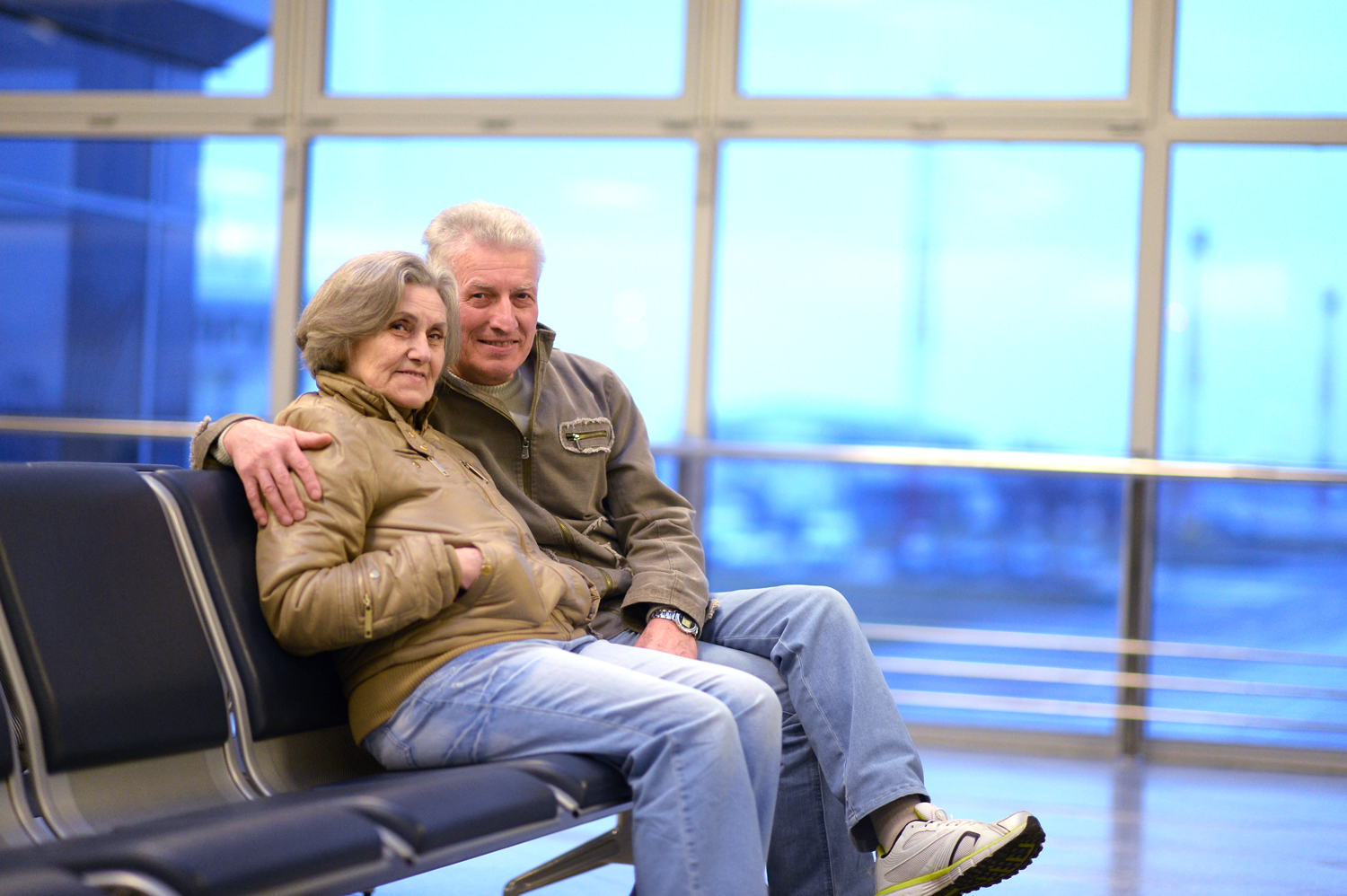Airport travel is stressful for everyone, let alone seniors.
Thankfully, the Federal Aviation Administration has taken steps to ease the burden of senior travelers especially for those with disabilities. Traveling should be a rewarding experience that reunites loved ones and old friends, rather than a nuisance.
We’ve put together a few simple tips that make traveling with seniors a smoother process.
Enjoy Eased Security Restrictions
TSA’s screening for passengers 75 and older can receive expedited screening and request the following benefits at the airport:
- You may leave on your shoes and light jacket during screening.
- If you alarm during security screening, you may be required to remove your shoes for further screening or undergo a pat-down. You can request to be seated during this portion of the screening.
- Passengers 75 and older who are unable to stand for screening will be screened through other security methods.
- Should you travel with medical devices and/or implants, other screening procedures may apply.
Get Appropriate Vaccinations
Seniors should be up-to-date on routine vaccines, such as measles, mumps, rubella (MMR) and seasonal flu before traveling. Some of these vaccines may seem like “childhood” vaccines, but the diseases they protect against are often common in other countries.
More than half of tetanus cases are in seniors over 65. Consider getting a tetanus booster before travel.
Inquire About Airfare Discounts
Keep an eye out for senior offers! Occasionally, senior travelers will receive discounts from airlines. It is always worth inquiring about senior markdowns.
Request Airplane Boarding Assistance
Seniors requiring special assistance can receive priority boarding. Seniors can also request escort help from airport staff in order to help them get to their seat and stow bags or to simply enjoy the ease of boarding before other passengers.
Prevent Injury
Falls are one of the more common causes of injury for seniors. To avoid injury while traveling, seniors should follow these tips:
- Always wear a seatbelt
- Avoid small, local planes
- Don’t ride in cars after dark in developing countries
- Don’t travel at night in questionable areas
Seniors should also consider buying travel health insurance in case of injury or illness overseas. Seniors traveling to remote areas should also consider evacuation insurance, which will pay for emergency transportation to qualified hospitals.
Travel with Medications
It is important to keep a senior’s regular medication regime while traveling.
Ask your loved one’s doctor for specific travel tips as well as necessary medications. Consider asking for medications that will ease traveling such as medications for: altitude illness, malaria or traveler’s diarrhea.
Pack enough medication for the duration of the trip, plus a few extra days in the event of travel delays. It is critical the key medications for things like: high blood pressure, diabetes or arthritis are not interrupted.






